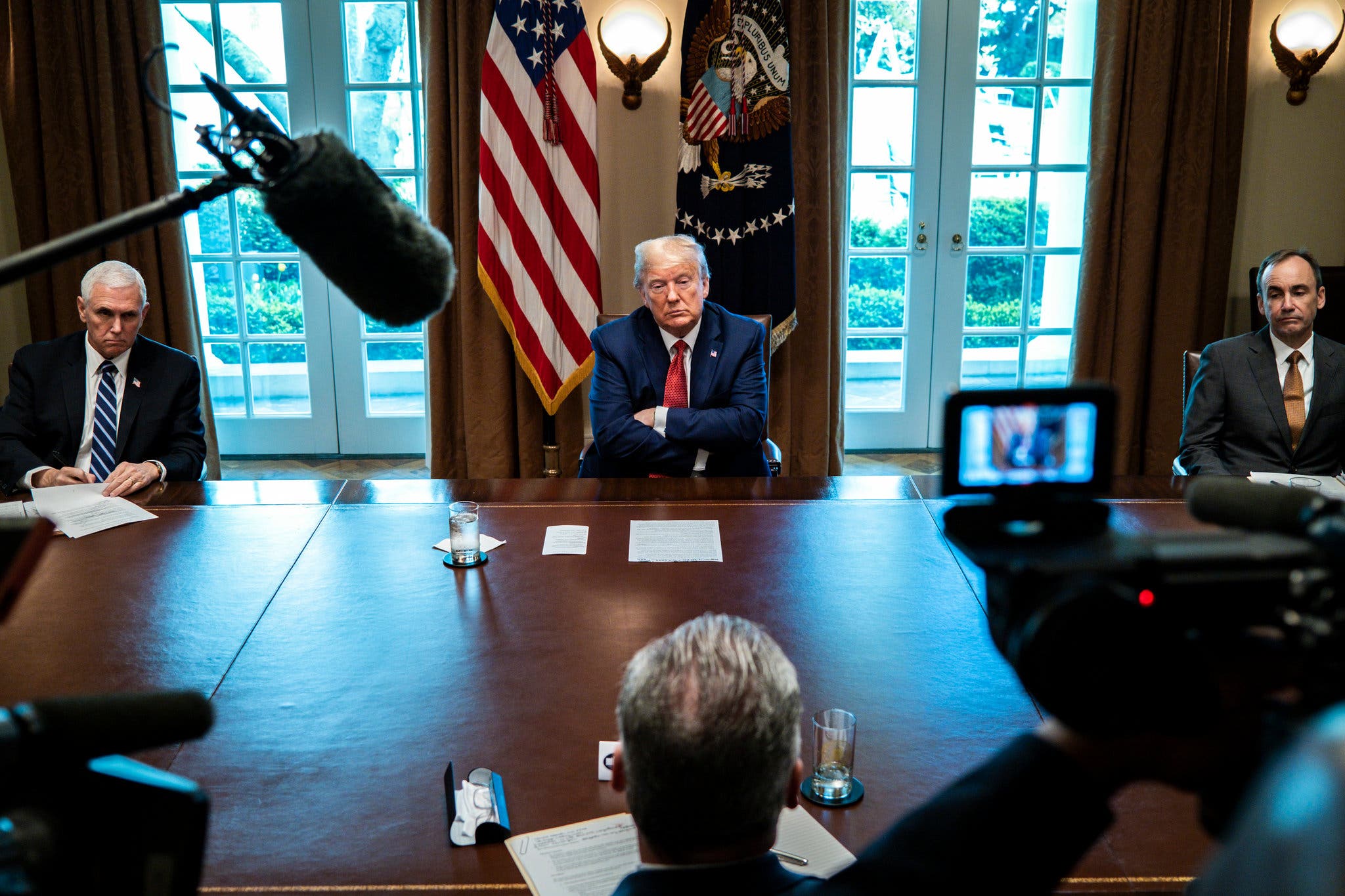Trump Defends Tariffs Against Court Challenge

Table of Contents
The Nature of the Court Challenge
One prominent court challenge against Trump's tariffs involved Association of Southeast Asian Nations (ASEAN) v. United States, filed in the US Court of International Trade. (Note: This is an example; replace with the actual case name and details if available). The plaintiffs, representing various industries significantly impacted by the steel and aluminum tariffs, argued that these tariffs violated existing trade agreements and exceeded the president's constitutional authority. Industries like manufacturing, construction, and automotive production suffered due to increased input costs.
- Legal Basis of the Challenge: The plaintiffs argued that the tariffs violated provisions of the WTO (World Trade Organization) agreements, specifically the principle of non-discrimination. They also challenged the basis for invoking Section 301 of the Trade Act of 1974, arguing the national security justification was insufficient.
- Economic Arguments: The plaintiffs presented economic data demonstrating job losses, factory closures, and significant price increases for consumers as a direct consequence of the tariffs. They cited economic studies showing reduced competitiveness for US businesses in the global market.
- Supporting Evidence: Their arguments were bolstered by industry reports, economic analyses from independent research firms, and testimonies from affected businesses highlighting the negative impact on their operations and profitability.
Trump's Defense Strategy
Trump's administration defended the tariffs, primarily on the grounds of national security and addressing unfair trade practices by other countries. The argument centered around the idea that the tariffs were necessary to protect strategically important domestic industries like steel and aluminum production. This echoed earlier rhetoric surrounding a "trade war" and the need to level the playing field.
- Legal Arguments: The defense likely argued that the president has broad authority under Section 301 to impose tariffs for national security reasons. They likely focused on interpretations of the law that allowed for flexibility in responding to perceived threats.
- Economic Counterarguments: The administration likely countered the claims of job losses by emphasizing the potential for increased domestic production and job creation within the steel and aluminum sectors. They might have pointed to specific investments and employment numbers as evidence.
- Supporting Evidence: The defense relied on government reports, economic data selectively highlighting positive impacts, and potentially national security briefings (though these might not be publicly available).
Economic Impact of the Tariffs
The economic consequences of Trump's tariffs were multifaceted and hotly debated. While the administration claimed to create jobs in certain sectors, many others faced significant challenges. The steel and aluminum industries saw some short-term gains, but downstream industries reliant on these materials suffered significantly increased costs.
- Impact on Consumers: Higher prices for steel and aluminum translated into more expensive cars, appliances, and countless other products, impacting household budgets. This contributed to inflation pressures across many aspects of consumer spending.
- Impact on Businesses: Many businesses faced increased input costs, diminishing profit margins, and reduced competitiveness in international markets. This led to some companies relocating production to countries with lower costs, resulting in job losses in the US.
- Impact on Employment: While some jobs were created in the steel and aluminum sectors, job losses in downstream industries likely outweighed any gains. The net effect on total US employment remained a subject of ongoing economic analysis.
Impact on Specific Industries
The automotive industry, for example, faced substantial challenges due to higher steel and aluminum costs. Increased production expenses led to reduced profitability and potentially higher prices for consumers. The construction industry also experienced increased costs for building materials, affecting both residential and commercial projects and leading to project delays.
Potential Implications for Future Trade Policy
This legal battle, regardless of its outcome, will set a significant precedent for future presidential use of tariffs. The interpretation of Section 301 and the balance between national security concerns and international trade agreements will be heavily scrutinized.
- Precedent Set by the Court: A court ruling, either upholding or rejecting the tariffs, will influence future challenges and define the limits of presidential authority in imposing tariffs. This will set a benchmark for future trade disputes and potential legal challenges to trade policy.
- Changes to Future Trade Policy: The outcome could lead to legislative changes designed to either clarify or restrict the president's ability to implement tariffs. It could also spark debates regarding better mechanisms for addressing unfair trade practices.
- Impact on International Relations: The case impacts US relationships with its trading partners. A ruling that deemed the tariffs unlawful could damage US credibility and standing in global trade negotiations.
Conclusion
The court challenge to Trump's tariffs represents a crucial juncture in the ongoing debate surrounding US trade policy. The legal arguments, economic impacts, and potential implications for future trade negotiations are far-reaching. Understanding the complexities of this legal battle is crucial for navigating the ever-evolving landscape of international trade. The core issues – presidential authority, national security justifications, and the economic impact of protectionist measures – require ongoing scrutiny. Stay informed about the ongoing legal challenges to Trump tariffs and their lasting impact on US trade policy.

Featured Posts
-
 The Rise Of Male Eyelash Shaving Understanding The Why And How
May 02, 2025
The Rise Of Male Eyelash Shaving Understanding The Why And How
May 02, 2025 -
 Selena Gomezs 80s Inspired High Waisted Suit A Style Guide
May 02, 2025
Selena Gomezs 80s Inspired High Waisted Suit A Style Guide
May 02, 2025 -
 On N Est Pas Stresse 8000 Km A Velo A Travers Le Bocage Ornais
May 02, 2025
On N Est Pas Stresse 8000 Km A Velo A Travers Le Bocage Ornais
May 02, 2025 -
 Lottery Results Wednesday April 30 2025
May 02, 2025
Lottery Results Wednesday April 30 2025
May 02, 2025 -
 April 16 2025 Lotto Results Winning Numbers Announced
May 02, 2025
April 16 2025 Lotto Results Winning Numbers Announced
May 02, 2025
